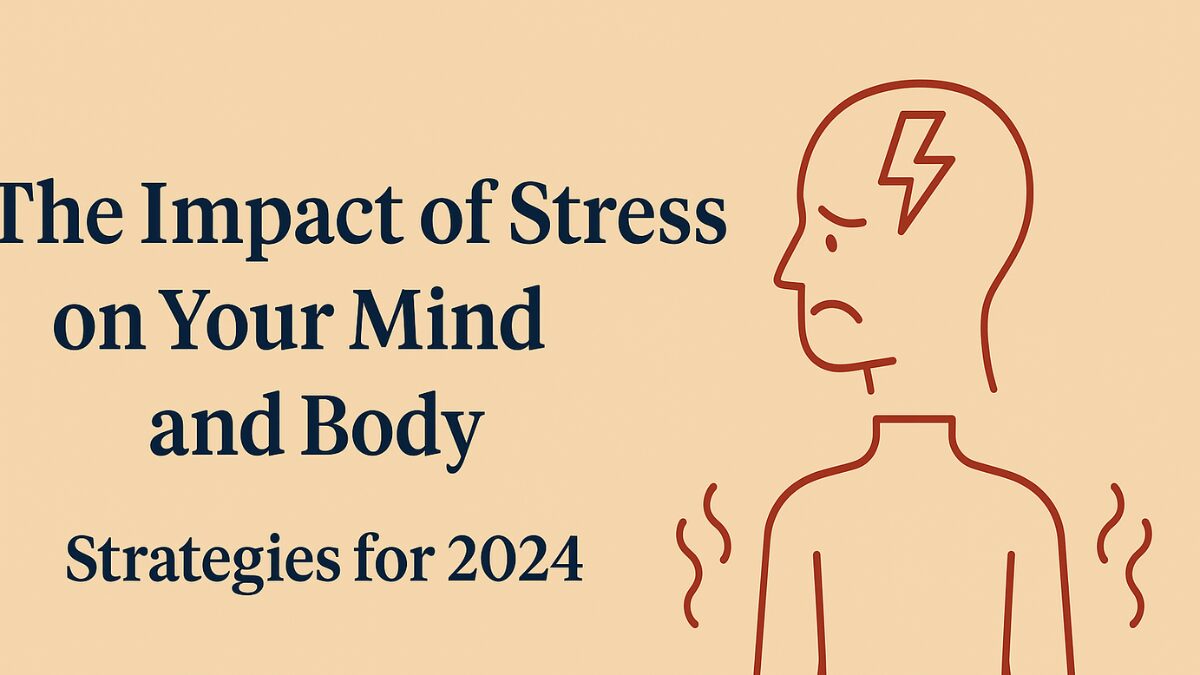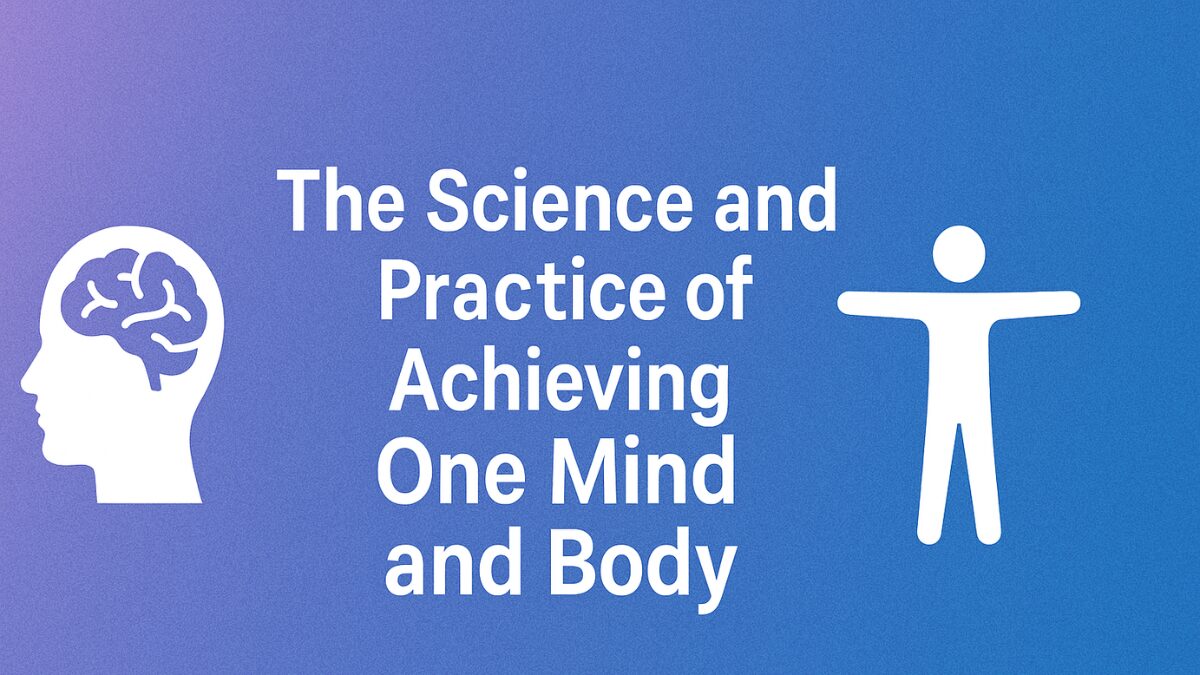Discover how stress affects your mind and body, and explore the most effective strategies for stress management in 2024. Learn practical tips and techniques for a healthier, calmer life.
Introduction
In today’s fast-paced and digitally connected world, stress has become a common part of daily life. From work-related pressures to personal responsibilities, the triggers are countless. Understanding the impact of stress on your mind and body is essential in 2024, especially when mental and physical health are under constant threat. This article explores how stress manifests, its short and long-term effects, and most importantly, the actionable strategies you can use to manage stress effectively this year.
What Is Stress and Why Does It Occur?
Stress is your body’s natural response to a challenge or demand. It can be caused by both good and bad experiences. When you feel threatened, a chemical reaction known as the “fight-or-flight” response occurs, preparing your body to face the danger or flee to safety. This response is helpful in emergencies, but prolonged stress can lead to serious health issues.

In 2024, stressors have evolved. Digital overload, job uncertainty, rising living costs, social comparison on social media, and global events contribute significantly to emotional burnout. Recognizing stress early is the key to reducing its damaging impact.
Effects of Stress on the Mind
Stress doesn’t just make you feel overwhelmed—it alters the way your brain functions. Chronic stress changes the structure and chemistry of the brain, affecting your thoughts, emotions, and decision-making abilities.
1. Cognitive Impairment
Stress can cause forgetfulness, lack of concentration, and mental fatigue. When the brain is constantly in a state of alert, it becomes difficult to focus on daily tasks or long-term goals.
2. Anxiety and Depression
Prolonged stress increases the risk of anxiety disorders and depression. Elevated levels of cortisol (the stress hormone) negatively affect neurotransmitters like serotonin and dopamine, which are responsible for mood regulation.
3. Sleep Disturbances
Stress often disrupts sleep patterns. Insomnia and restless nights can become a routine, leading to more emotional instability and cognitive decline over time.
Effects of Stress on the Body
While the mental effects are significant, the physical consequences of stress are equally serious. It’s not uncommon for people to visit doctors for stress-related physical symptoms without realizing it.
1. Cardiovascular Problems
Stress raises blood pressure and increases the risk of heart disease. In severe cases, it can lead to strokes or heart attacks.
2. Weakened Immune System
Chronic stress suppresses immune function, making you more vulnerable to infections, colds, and other illnesses.
3. Digestive Issues
Stress affects the gut-brain axis, often leading to nausea, diarrhea, constipation, or irritable bowel syndrome (IBS).
4. Hormonal Imbalance
Stress disrupts hormone levels, especially cortisol and adrenaline, which can cause issues with weight, energy levels, and reproductive health.
Table: Common Symptoms of Chronic Stress
| Category | Symptoms |
|---|---|
| Emotional | Anxiety, irritability, depression, mood swings |
| Physical | Fatigue, headaches, stomach issues, rapid heartbeat |
| Cognitive | Forgetfulness, poor concentration, confusion |
| Behavioral | Overeating, substance abuse, social withdrawal |
Key Stress Triggers in 2024
In 2024, the sources of stress have become more complex. A few of the prominent stress triggers include:
- Remote work burnout: Although flexible, remote work often blurs the line between work and personal life, causing overworking and isolation.
- Financial uncertainty: Rising inflation and economic instability increase financial pressure on individuals and families.
- Social media pressure: Constant comparison with others on social media platforms creates unrealistic expectations.
- Climate anxiety: The growing concern about environmental changes is a new source of stress for many.
- Health concerns: Lingering post-pandemic worries about viruses and healthcare continue to contribute to stress.
Strategies to Manage Stress Effectively in 2024
Managing stress is no longer optional; it’s essential for survival in today’s environment. Thankfully, many science-backed strategies can help manage stress effectively.

1. Mindfulness and Meditation
Mindfulness practices such as guided meditation, deep breathing, and grounding techniques help bring awareness to the present moment. Apps like Calm and Headspace have seen a surge in popularity due to their effectiveness.
2. Physical Activity
Exercise remains one of the most powerful stress relievers. It boosts endorphins, reduces cortisol, and improves sleep. Even a 30-minute walk daily can significantly reduce stress levels.
3. Digital Detox
Taking a break from screens, especially social media, helps reduce information overload and anxiety. A weekend digital detox or setting specific screen-free hours can be beneficial.
4. Healthy Diet
What you eat affects how you feel. A diet rich in omega-3s, complex carbohydrates, magnesium, and vitamin B can help reduce stress symptoms. Avoid excessive caffeine, sugar, and processed foods.
5. Sleep Hygiene
Creating a consistent sleep schedule, avoiding screens before bedtime, and making your bedroom a peaceful space are essential for managing stress.
6. Talk Therapy or Counseling
Professional therapy, whether in-person or online, is increasingly being used to combat stress. Cognitive Behavioral Therapy (CBT) in particular is effective for stress-related issues.
7. Social Support
Staying connected with friends and loved ones provides emotional comfort. Sharing your thoughts and feelings can lighten emotional burdens and provide clarity.
8. Time Management
Stress often comes from feeling overwhelmed. Using planners, setting realistic goals, and breaking tasks into smaller chunks can make a big difference.
Table: 2024 Stress Management Techniques and Their Benefits
| Technique | Main Benefit |
|---|---|
| Meditation | Reduces anxiety and improves focus |
| Regular Exercise | Boosts mood and lowers cortisol |
| Digital Detox | Lowers screen fatigue and eye strain |
| Healthy Nutrition | Supports brain and immune function |
| Sleep Optimization | Enhances memory and reduces fatigue |
| Therapy and Counseling | Helps process emotions and gain insight |
| Social Interaction | Builds emotional resilience |
FAQs About the Impact of Stress on Your Mind and Body
- Can stress cause long-term damage to the brain?
Yes, prolonged stress can alter brain structures like the hippocampus and amygdala, affecting memory and emotion regulation. - How early in life can stress affect a person?
Stress can begin affecting individuals even during childhood, potentially leading to developmental and behavioral issues. - Is stress contagious in workplaces or families?
Yes, emotional stress can spread through social interactions—a phenomenon known as “emotional contagion.” - Can pets help reduce stress?
Absolutely. Interaction with pets is proven to lower blood pressure and increase dopamine and serotonin levels. - Does music therapy work for stress relief?
Yes, calming music can reduce stress hormones and promote relaxation, especially instrumental or nature sounds. - Is there a link between stress and weight gain?
Chronic stress can lead to emotional eating and hormonal changes that cause weight gain. - How does stress affect skin health?
Stress can trigger acne, eczema, psoriasis, and premature aging due to inflammation and hormonal imbalance. - Can journaling reduce stress?
Writing down thoughts and emotions can help process them more effectively and reduce mental clutter. - Are there any wearable tech devices for stress monitoring in 2024?
Yes, smartwatches and fitness bands now track stress levels using heart rate variability and offer guided breathing sessions. - How do herbal supplements help with stress?
Adaptogenic herbs like ashwagandha and rhodiola are known to help the body manage stress naturally, though one should consult a doctor before use.
Conclusion
Stress is a silent disruptor that affects your mental clarity, emotional stability, and physical health. In 2024, with ever-evolving stressors, understanding the impact of stress on your mind and body has never been more crucial. By identifying symptoms early and implementing evidence-based strategies like mindfulness, exercise, and digital detoxing, individuals can significantly enhance their quality of life. Prevention and proactive care are the foundations of a stress-resilient lifestyle. With the right knowledge and tools, you can transform stress from a debilitating force into a manageable challenge—leading to a healthier, calmer, and more balanced year ahead.
also read: https://www.comfortglobalhealths.com/holistic-wellness-industry-analysis-opportunities-for-growth/










